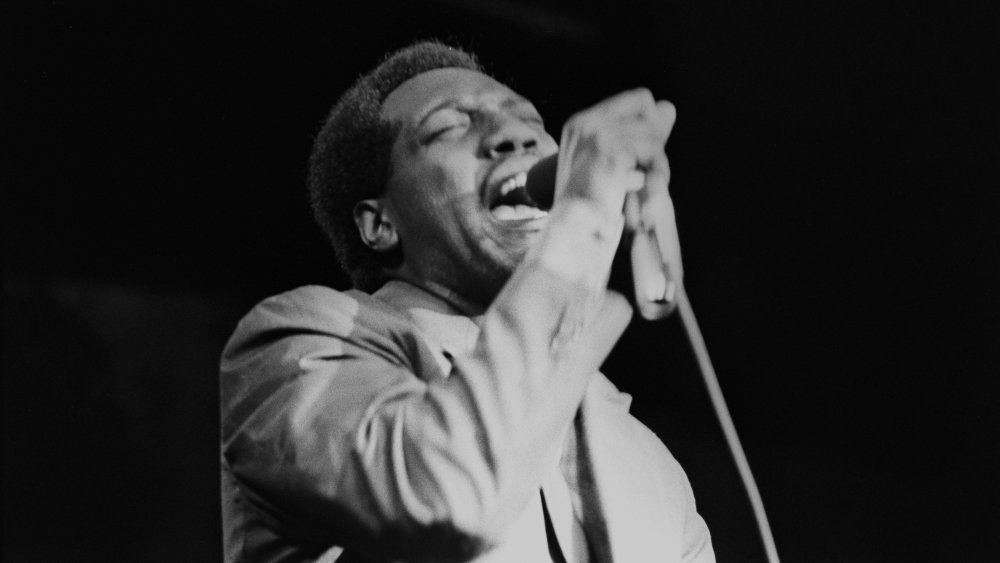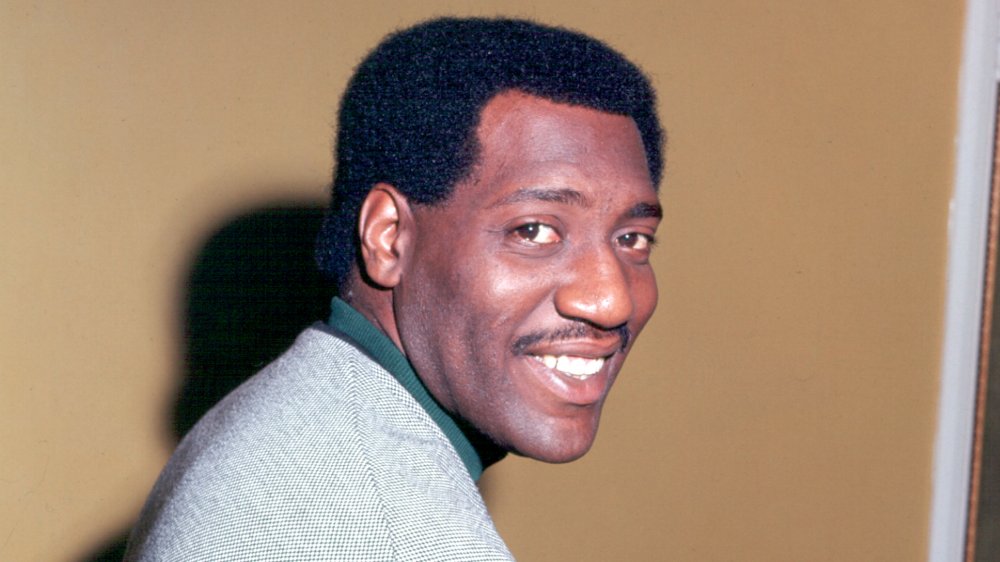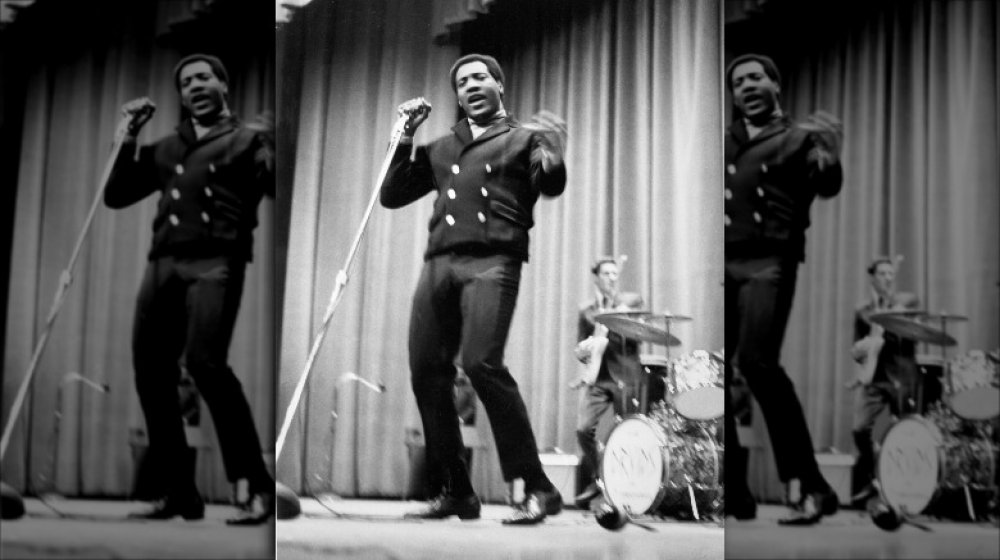The Tragic Death Of Otis Redding
Otis Redding burned hard and bright during his five short years as a professional entertainer before he tragically died at the peak of his fame. Rolling Stone called him "the Crown Prince of Soul" when it reported the heartbreaking news of the plane crash that killed him on December 10, 1967. And, according to Biography, "The King of Soul" was also among the list of nicknames that his undeniable onstage energy earned him. "Rockhouse Redding" (another nickname) was only 26 years old when he died. As Redding biographer Jonathan Gould wrote in The New Yorker, "his incomparable voice and vocal persona established him as soul music's foremost apostle of devotion, a singer who implored his listeners to 'try a little tenderness' with a ferocity that defied the meaning of the word."
But he was doing much more than singing up on stage. He was crossing the strictly observed racial lines drawn during the Jim Crow era, wowing listeners both Black and white in both the northern and southern U.S., as well as in Europe. In the year before his death, he had gone on tour in France, Britain, and Scandinavia, and done shows at the Monterey Pop Festival and in San Francisco's iconic Fillmore Auditorium. Gould wrote that "he was determined to become the first African-American artist to connect with the burgeoning audience for album rock that had transformed the world of popular music since the arrival of The Beatles in America, in 1964."
The number one hit Otis Redding recorded just before his death
Gould told the story of the song that would define Otis Redding's all-too-brief career in a May 2017 article on Lit Hub. He quoted the singer's wife Zelma, who said that when she heard the songs he was writing toward the end of 1967, she told her husband, "You're right. You are going be new. You're not begging anymore."
As it turned out, the rest of the world would find itself begging for more Otis. "(Sittin' On) The Dock of the Bay" was released in January 1968 and within days it "assumed the trajectory of a runaway radio hit, rising into the Top 10 by the middle of February." Then it went on to break a plaintive record. In March, it became the first posthumously released record in history to reach the coveted number one spot on the Billboard charts. And it did so on both the R&B and Pop charts. Due to the song's wild popularity, Atlantic Records quickly put a full LP together, which included other singles he had recently released just before the plane crash that tragically ended his life all too soon. These included "The Glory of Love," "Tramp," and the speechlessly soulful "I Love You More than Words Can Say." The album cemented Otis's legacy as a maker of music, in addition to a phenomenal voice and stage performer, as it included a candid photograph of the singer playing a guitar on the back.
The other futures lost on the night of Otis Redding's death
The plane that crashed into a lake near Madison, Wisconsin, that cold December night also carried all but one of the members of the Bar-Kays, a soul ensemble from Memphis, Tennessee, who had done over a hundred shows with Redding on that tour. Only one member of the band, Ben Cauley, made it away from the wreckage with his life. Four others — Ronnie Caldwell, Carl Cunningham, Jimmy King, and Phalon Jones — died along with Redding. A fifth member of the band, James Alexander, was on another flight, as there wasn't any room for him on that doomed aircraft. He'd planned on meeting up with them when they landed, but instead had to rush to the scene of the accident to identify the bodies of his friends. "Man, it's a very numb, empty feeling," he told Memphis's local CBS affiliate in 2012. "It's a very empty feeling just to wake up and guys earlier in that day you were laughing and talking with, and all of a sudden those guys aren't around."
Alexander looked back fondly on Redding and the others he lost in that tragic touring accident: they "were all so happy-go-lucky so it was just a devastating period during that time." And, with the enduring legacy of songs like "The Dock of the Bay," he is sure to get his wish that they all be remembered for the soulful contributions they made to American music.


